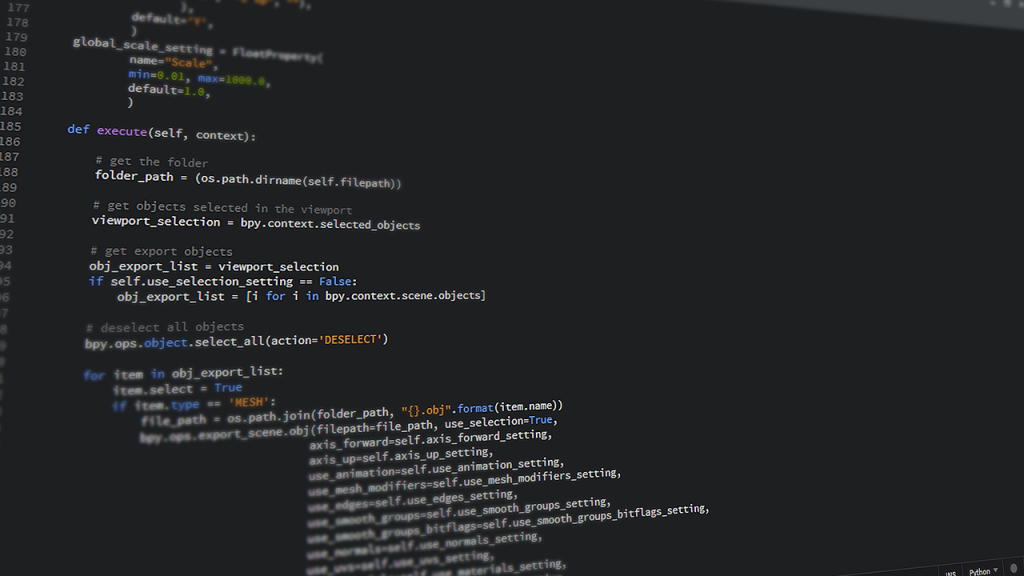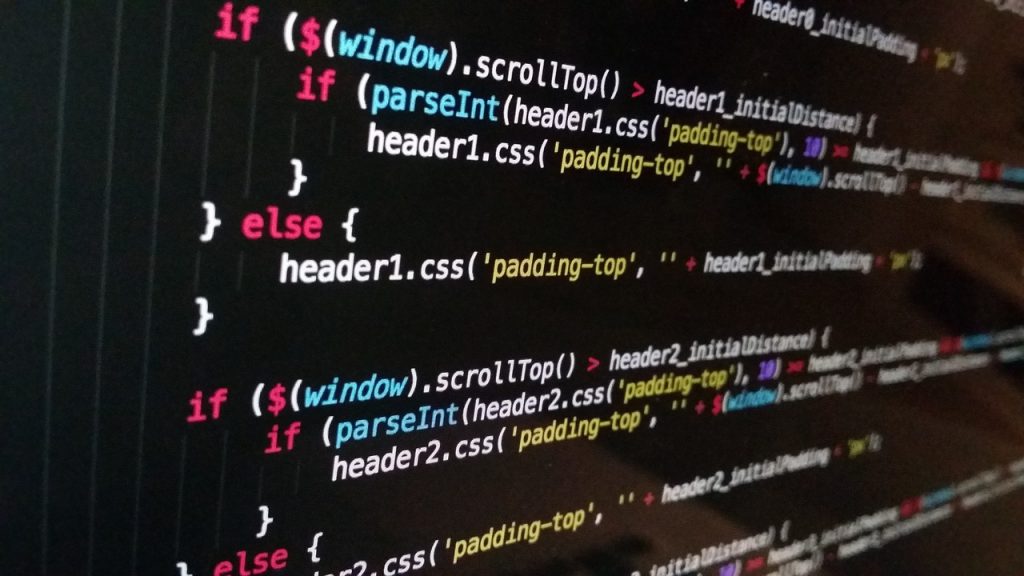Most people approach me often ask the same question: what’s the best programming language to learn? The answer is: it depends. I wrote an article that declared the mathematical and analytical skills behind programming are what really matter. Now, I’m a bit wiser –so I’ve had the time to break it down into a more tangible and useful answer.
What is the best programming language to learn? It depends, and you can be much more efficient with your time by knowing which programming language is the best for what you want.
So I’ve broken down the best programming language to learn for a variety of needs. I took into consideration the amount of time you need to invest in a programming language and the power you need for different tasks.
You want a versatile, general-purpose language that can be narrowed to different tasks without too much hassle.

Python is a programming ecosystem with a vast array of communities and libraries for different use cases. From Django for web development to Pandas for data, Python is the Swiss-army knife of programming languages. Its syntax is also very approachable, and there are tons of tutorials and documentation for beginners. These libraries tend to be almost like learning a new syntax or paradigm.
Still, the ability to import libraries of different kinds and have a relatively consistent experience puts Python up here. If you want a simple intro-level programming language, Python is a great choice. With the second most active community on Github (at about slightly under 15% of all active users), you’re sure to find many projects and usable components to play with in Python.
Python Resources:
This step-by-step tutorial teaches Python in an accessible manner. It makes it easy for you to go through the basics of everything from data structures to how to structure functions. That makes it ideal for people who don’t have programming experience.
11 Beginner Tips for Learning Python
This set of tips is a handy primer for not only learning Python, but really a generalizable way to learn and practice all kinds of different programming languages.
The Zen of Python is more philosophical than practical. Still, it serves as a useful reminder of the ideals of Python programming and the ideals one should strive for. Simple, after all, is better than complex.
Codecademy: Learn Python for Free
This free interactive Codecademy course is a great way to start with Python basics and syntax. Use it to cement the theory you’ve learned and start practicing with Python.
Web Development Using Python and Django
Python is versatile mostly because there are tons of documentation and frameworks. Django is a content management system built on Python. This curated curriculum will help you learn what you need to build fully-fledged websites with Python by tapping into Django.
You’re interested in working with data, in a data analysis or data science capacity or as a data engineer/machine learning engineer

When it comes to the data ecosystem, you’ll want to learn SQL as a domain-specific way to work with data. However, SQL is not a general purpose programming language, but merely a utility to deal with one data type over another. You can think of it as a complex interface to the .sql data format.
There are two obvious choices here, R or Python. Academics tend to use R. It used to have the bulk of good data visualization and analytics libraries. Now, however, the open-source Python community has sprinted to catch up. With the advent of machine learning, the balance has shifted towards Python.
Previously, I wrote about both R vs. Python a few years ago. I came out with the conclusion that both had their uses. It was perhaps best to learn both. Practically speaking however, if you’re dealing with large amounts of data ,Python gets the slightest of edges here as the best programming language to learn for data purposes, especially if you’re coming from a programming background in the first place — it’ll be easier for you to work with Python’s syntax than R.
Python and Data Resources:
Data Science Sexiness, R vs Python
I wrote this guide describing the differences between R and Python, and listed a bunch of learning resources for both. I concluded it might be best to learn both, but I’ve since become immersed in the Python ecosystem when it comes to data.
Introduction to the Machine Learning Stack
I wrote this tutorial which summarized the frameworks and libraries you need to know to get started doing machine learning with different frameworks, most of which have Python ports or APIs so you can write code in Python (or in any case, Pythonic syntax) and get started.
Pandas was where I really started practicing programming: wrangling datasets is a passion of mine. This tutorial walks through how to use Pandas with an example dataset. You’ll learn how to import data of different formats, transform it in different ways, and then extract and export it.
How to do Common Excel and SQL Tasks in Python
Another tutorial I wrote helps you port some of the logic and functions in both Excel and SQL to Python. Do everything from importing data to analyzing it in the summary form or filtered form you’ve come to expect.
This curated curriculum takes your Python skills and helps you learn machine learning theory. By pairing the two, you can start working on machine learning projects by the end.
You want to build mobile applications that require access to native functionalities such as a phone camera

Depending on what ecosystem you want to build in, the best language is quite selective. If it’s the Android ecosystem, you’re going to have to learn Java.
Meanwhile, if you’re interested in building for the iOS ecosystem and getting placed on Apple’s App Store, you’ll have to learn Swift. Swift is Apple’s official programming language for its laptops based on MacOS, iOS, or for Apple Watch apps.
There are other ecosystems such as Microsoft, which needs C#. There are also cross-platform programming languages such as React Native. Microsoft doesn’t have as much market share as either Android phones or iPhones. Reach Native doesn’t have access to as many of the specific native functions on either device (and you’ll have to compile down to Swift or Java to get those features). Still, they’re handy languages to know about, even if they might not be the best — unless you were trying to launch on as many platforms as possible.
Resources:
Android Application Development
Learn the ins and outs of Android application development, from building an application to how debug common issues.
This interactive set of courses will help you get through the basics of Swift and building iOS applications. You’ll pass to an intermediate stage/course once done.
400+ Swift Language Video Tutorials
If video learning is more of your thing, look no further than this series of video tutorials on Swift topics. They’re broken down into sets of continuous playlists, so you can pick and choose a particular curated playlist or choose a particular topic to focus on.
This React Native tutorial and documentation from Facebook is a fairly comprehensive overlook on how the versatile cross-platform framework works.
If you want to speed up your app development cycle across multiple platforms and want to stick to using JavaScript for your mobile app coding, Expo can be a quick, iterable solution.
You want to build the latest web applications

For web development, PHP used to be the default, powering everything from e-commerce sites to WordPress itself. Now though, most people have shifted to JavaScript and different frameworks within it. There’s a bit of a fight going on between the major tech companies on building web development interfaces, with Google sponsoring Angular.js while Facebook builds React.js. In practice, these mega-corporations are building the most recent web development frameworks for their needs and then open-sourcing and supporting the developments.
Both are doing it on JavaScript, so if you want to build the latest and greatest in web applications and benefitting from their work and others, look no further. JavaScript is the best programming language to learn for cutting-edge web development applications. It boasts the most active community on Github with over 22% of all active users participating in the JavaScript community.
JavaScript Resources:
This wiki gives you a broad overview of JavaScript and how it serves web content. You’ll understand basic concepts like how JavaScript interacts with browsers once you’re done. You can then take the next step towards learning more powerful frameworks.
jQuery is a powerful JavaScript library that allows you to do powerful things such as animations with a one-word function. Use this tutorial to grasp the basics and combine it with HTML and CSS to serve dynamic web content easily.
How to Learn React — A roadmap from beginner to advanced
This roadmap will help you conceptualize your roadmap for learning JavaScript frameworks like React.js.
React.js is a powerful framework to create web interfaces. Practice with this Codecademy course.
This tutorial will summarize all of your theory-based learning towards building a MEAN stack application that will serve as a Reddit clone. This is a full-featured web app that has user authentication, databases through MongoDB, routing and linking through Express and a back-end server through Node.js and a combination of Angular (though React can also be used in this situation). At the end of this tutorial, you should be able to extend your learnings and build full-fledged web apps.
You need to do something that requires very high performance (ex: cryptography)

For tasks that require a lot of compute power and manipulation of lower-level processes such as dynamic memory allocation, it’s best to work in C++. Lower-level tasks require more efficient implementations of memory and space and involve working closer to hardware in order to get higher performance. C++ is lower-level than all of the languages discussed about yet is also still readable and compilable enough so that with some practice, you can be conversant in it.
Python can access lower-level functions with something called Cython using the C programming language. Bitcoin is coded in C++, including its advanced cryptographic features. In order to do something at a highly performant level, you’ll likely need to access C++ and its superior lower-level flexibility.
C++ Resources:
This edX course, provided by Microsoft, will help you get started with C++ and its basics.
This wiki helps you tackle C++ from A to Z. There’s different sections dedicated to everything from how to write functions in the language to how to deal with different variables and types.
Consolidate all of the theory you’ve learned by practicing with this free C++ course with Codecademy.
Cython allows you to access C++ functions while using Python, combining the versatility of the Python ecosystem with the power of C++.
If you want to look into advanced functions such as cryptography, look through this list of C++ cryptography libraries to get you started.
—–
I hope this tutorial has helped you determine what the best programming language to learn for you. If you have any questions, feel free to ask me at [email protected]. Please leave a comment below if you want to give feedback or if you think I’m missing something 🙂